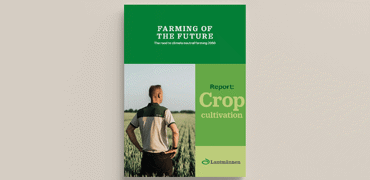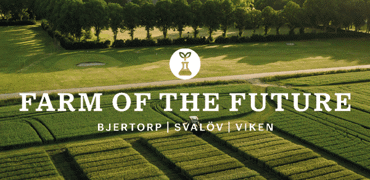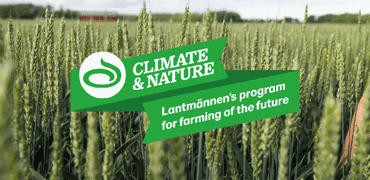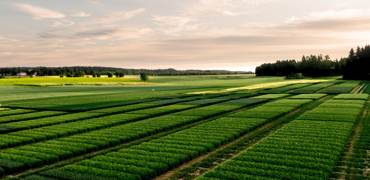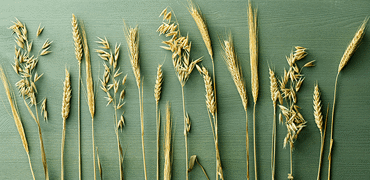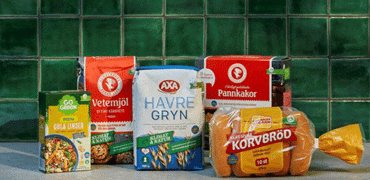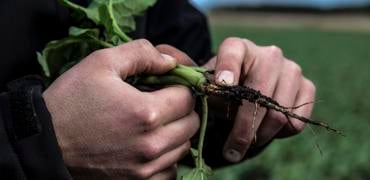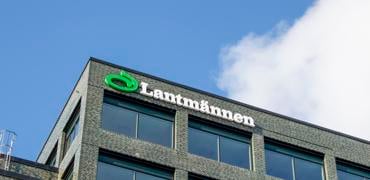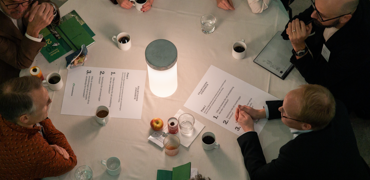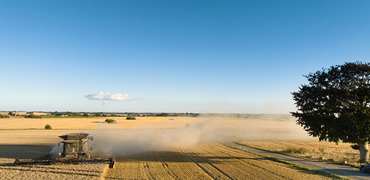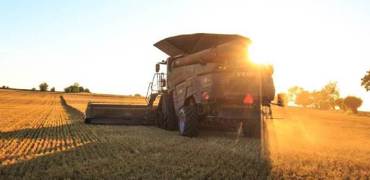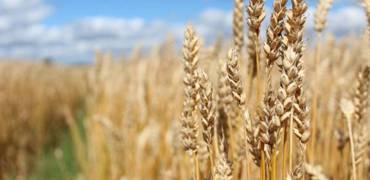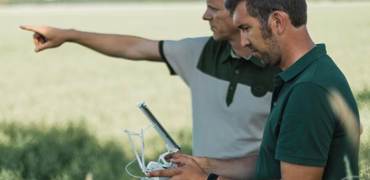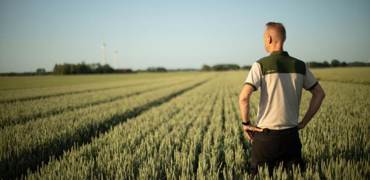Director Group Strategy Patrik Myrelid about the worlds challenges
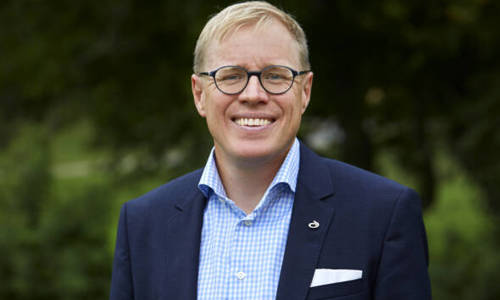
A world with war and climate change poses major challenges. At the same time, interest in Lantmännen's operations has rarely been this great. Patrik Myrelid, Director Group Strategy at Lantmännen, explains what's in the cards going forward.
The summer of 2023 quickly went from drought to flooding. Two weather extremes in the same season. Unfortunately, that signifies the situation we are in right now, says Patrik Myrelid, Director Group Strategy at Lantmännen. Lantmännen's annual update of the strategy gives an overview of what the organization will focus on in the coming years, as well as an analysis of current world events. External shocks have followed each other closely in recent years: the drought in 2018, the pandemic, the war in Ukraine, and now the inflation.
"The world we live in is... In terms of strategy, you might say that we are experiencing a relatively dramatic change. It is now abundantly clear that we are experiencing changes in the climate, and we need to find the right way to adapt to those changes. Our entire business is based on the photosynthesis and is of course exposed to the weather conditions.”
ON THE ONE HAND, LANTMÄNNEN IS DRIVING work for a climate transition that, in simple terms, is primarily about phasing out fossil fuels while at the same time increasing harvests. In recent months, the focus has also sharpened on climate adaptation: that is, finding ways to run functioning businesses despite climate change:
"In the area of climate adaptation, we are developing a number of topics: for example, better and more drainage and irrigation, an area that has long been underinvested. But also, plant breeding: to produce crops that can cope with a warmer climate. In addition, climate adaptation is also about risk management, ensuring that Lantmännen's portfolio is diversified at all stages, from cultivation to processing, in order to handle different harvest qualities.”
A LOT FALLS UNDER THE BANNER OF GEOPOLITICAL TURMOIL: population growth, macroeconomics, and global trade flows. Most obvious in recent years, however, is how Russia's war against Ukraine has affected the global commodity market. As we all know, the war continues, but the commodity market has settled down a bit after the initial shock.
AT THE SAME TIME, RUSSIA is the world's largest exporter of mineral fertilizers. Lantmännen is pushing Swedish politicians to facilitate domestic production of mineral fertilizers, with access to renewable electricity being a particular challenge. That is one of ten suggestions that Lantmännen has presented as input to what will become the government's Food Strategy 2.0, where an overall goal is to achieve net trade of zero (imports and exports being the same size). In addition to production of fertilizer, to the suggestions include strengthening the profitability and competitiveness of Swedish agriculture, better access to capital for young and growing agricultural companies, increased production, and use of domestic biofuels, and strengthened security of supply through strategic storage of key inputs.
"Storing food for the entire population would be unjustifiably expensive, but we want politicians to ensure that farmers can keep going even if a crisis or war would emerge. The cow continues to give milk every day if it is fed, the grain is harvested once a year if the farms are given the opportunity to sow, fertilize and harvest. That's why we need to store fuel, mineral fertilizers, seeds, and grain so that farmers can continue their important tasks even in times of crisis," says Patrik Myrelid.
ALTHOUGH THE GEOPOLITICAL TURMOIL poses challenges, there are also opportunities, according to Lantmännen's Director Group Strategy. The public's and society's focus on food supply, prices and origin has rarely been as great as it is today.
The text, written by Peter Hammarbäck, was first published in Lantmännen's member magazine Grodden.






